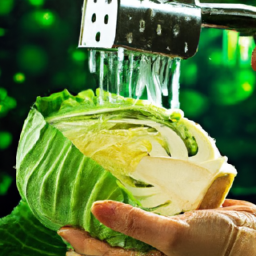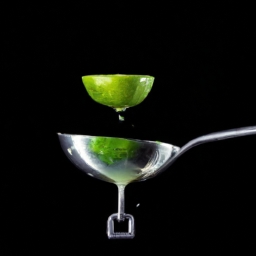Did you know that half of Americans drink orange juice at least once a week? With its tasty flavor and health benefits, it’s no wonder that orange juice is a popular choice. But once you’ve opened that orange juice carton, how long does it stay fresh and safe to drink?
In this article, I will delve into the shelf life of orange juice, its nutritional value, and how to tell if it has gone bad. I will also provide safety considerations, tips for extending its shelf life, different types of orange juice, and how to store it safely. Finally, I will answer the burning question: how long does orange juice last after opening, and what are the best ways to use up any leftover juice?
So, let’s get started.
Key Takeaways
- Freshly squeezed orange juice has a shorter shelf life than pasteurized orange juice.
- Proper refrigeration and handling can extend the shelf life of orange juice.
- Expired orange juice can be used in various recipes, but it’s crucial to be aware of potential safety hazards.
- Orange juice is high in sugar and calories, so moderation is key to reaping its health benefits.
The Shelf Life of Orange Juice
So, you’ve just opened a carton of orange juice and you’re wondering how long it will last. Well, the shelf life of orange juice can vary depending on factors such as storage temperature and the type of packaging used.
To preserve freshness, it’s recommended to refrigerate orange juice at a temperature between 32-40°F. If kept at room temperature, the juice will only last for a few hours before it begins to spoil.
The type of packaging used also plays a role in the shelf life of orange juice. For example, juice stored in a tetra pack carton can last up to a year if unopened, while juice in a clear plastic bottle will only last a few days after opening. In addition, exposure to light and air can also affect the quality of the juice.
Therefore, it’s best to consume orange juice within a few days after opening to ensure maximum freshness and nutritional value. Speaking of nutritional value…
The Nutritional Value of Orange Juice
The nutritional benefits of a freshly squeezed glass of citrus fruit nectar can be maintained for a considerable amount of time. Orange juice is a great source of vitamin C, which is essential for the immune system. It also contains folate, potassium, and thiamine. These nutrients are important for overall health, and they can be found in other juice alternatives, but not at the same level as orange juice.
Orange juice benefits include reducing inflammation, improving heart health, and lowering the risk of kidney stones. However, it’s important to note that orange juice is high in sugar and calories, so it should be consumed in moderation.
Overall, if you’re looking for a healthy beverage option, orange juice is a great choice.
In the next section, we’ll discuss how to tell if orange juice has gone bad.
How to Tell if Orange Juice has Gone Bad
To figure out if your orange juice has gone bad, you should take a sniff. If the juice smells sour or off, it may have gone bad. Another way to check is by looking at the color and texture. If the juice appears darker or thicker than usual, it may have started to spoil. It’s important to note that fresh orange juice typically has a shelf life of 5-7 days once opened, so it’s best to consume it within that timeframe.
But what if you’ve missed the window and your orange juice has expired? Don’t worry, there are still ways to use it up. Expired orange juice can actually be used in a variety of recipes, such as marinades, salad dressings, and baked goods. Additionally, adding orange juice to your diet can provide numerous health benefits, including boosting your immune system and aiding in digestion. So the next time you have some expired orange juice, don’t throw it away – get creative and add it to your favorite recipes for a delicious and nutritious twist.
When it comes to expired orange juice, it’s important to keep safety considerations in mind. While it may still be usable in recipes, consuming expired juice can pose health risks, especially for those with weakened immune systems. It’s always best to err on the side of caution and discard any juice that appears to have gone bad.
Safety Considerations
When dealing with expired orange juice, it’s crucial to keep in mind the potential safety hazards that can arise. Possible contaminants such as bacteria, mold, and yeast can grow in the juice when it’s left unrefrigerated for too long or exposed to air. These contaminants can cause illnesses such as food poisoning or stomach infections.
It’s important to check the expiration date on the orange juice and properly handle it to avoid any potential safety risks. Proper handling includes refrigerating the orange juice immediately after opening it and consuming it within 7-10 days. It’s also important to avoid touching the spout of the container with your mouth or any other object that may be contaminated. If the juice has an unusual odor, appearance, or taste, it’s best to dispose of it immediately.
By following these safety measures, you can ensure that your orange juice is safe to drink and prevent any potential illnesses. Moving on to the next section, here are some tips for extending the shelf life of orange juice.
Tips for Extending the Shelf Life of Orange Juice
When it comes to extending the shelf life of orange juice, there are a few tips that I always keep in mind.
First and foremost, refrigeration is key. Keeping orange juice at a consistent temperature of 40°F or below can help prevent the growth of harmful bacteria.
Freezing is also an option, but it’s important to note that the texture and flavor may be affected.
Lastly, using preservatives can help to maintain the quality of the juice for a longer period of time. However, it’s important to use them in moderation and follow all instructions carefully.
Refrigeration
If you don’t refrigerate your orange juice after opening, it will only last for about 1-2 days before going bad. This is because orange juice is a perishable product that is prone to spoilage due to the presence of microorganisms.
When you leave orange juice at room temperature, these microorganisms can multiply rapidly, causing the juice to spoil even faster. Alternative storage methods, such as keeping the juice in a thermos or airtight container, can help preserve its freshness for a short period of time. However, these methods are not as effective as refrigeration and can lead to flavor changes.
It’s important to note that even if you refrigerate your orange juice after opening, it still has a limited shelf life of 5-7 days.
Transitioning to the subsequent section about freezing, it’s worth noting that freezing is a great way to extend the shelf life of orange juice. By freezing the juice, you can actually preserve its nutritional value and flavor for up to 8 months. However, there are some important considerations to keep in mind when freezing orange juice, which we’ll discuss in the next section.
Freezing
Previously, we discussed the importance of refrigerating orange juice after opening to maintain its freshness and quality. However, another option for preserving orange juice is freezing it. Freezing orange juice can extend its lifespan for up to six months, giving you more time to enjoy this delicious and nutritious beverage.
When freezing orange juice, it’s important to transfer it into a freezer-safe container that is airtight. This will prevent any freezer burn or contamination from other foods in the freezer. Once frozen, orange juice can be thawed in the refrigerator or at room temperature. It’s important to note that after thawing, the texture and taste of the orange juice may change slightly, but it will still be safe to consume. Frozen orange juice can also be used in recipes, such as smoothies or cocktails, adding a refreshing and tangy flavor.
To further explore the benefits of orange juice, I have provided a table below that highlights its nutritional value and potential health benefits. Orange juice is an excellent source of vitamin C, which helps support a healthy immune system and may reduce the risk of chronic diseases. Additionally, it contains folate, potassium, and antioxidants that can benefit heart health and overall wellness. Incorporating orange juice into your diet can be a delicious way to boost your nutrient intake and reap its health benefits.
Moving forward, if freezing or refrigeration is not an option, using preservatives can also help maintain the freshness and quality of orange juice. Let’s explore this option in the next section.
Using Preservatives
To maintain the freshness and quality of your orange juice for longer periods, you can use preservatives. These are substances that are added to the juice to prevent spoilage and extend its shelf life. Some common preservatives used in orange juice include sodium benzoate and potassium sorbate.
While preservatives can be effective in prolonging the shelf life of orange juice, there are alternatives to using them. For example, you can store your juice in airtight containers in the refrigerator, or freeze it for later use. Moreover, some people may be concerned about the potential health effects of consuming preservatives. However, studies have shown that when used in small amounts, preservatives are safe for consumption.
Moving on to the next topic, it’s important to consider the different types of orange juice available in the market.
Different Types of Orange Juice
You’ll love learning that freshly squeezed orange juice contains up to 50% more Vitamin C than its pasteurized counterpart. This is because freshly squeezed orange juice is made from different types of orange varieties, which are richer in nutrients than the ones used for pasteurized orange juice.
Some of the most common orange varieties used for freshly squeezed juice include Valencia, Navel, and Blood oranges. Drinking orange juice daily can provide numerous health benefits, including boosting the immune system, reducing inflammation, and improving heart health.
However, it’s important to note that not all orange juice is created equal. Some types of orange juice, such as those that contain added sugars or artificial flavors, can negate the health benefits of drinking orange juice. When choosing orange juice, it’s important to read the label carefully and opt for 100% pure orange juice.
In the next section, I’ll discuss how to store orange juice safely to ensure that it remains fresh and nutritious.
How to Store Orange Juice Safely
As I’ve mentioned before, there are different types of orange juice available in the market. But no matter which type you prefer, it’s important to know how to store orange juice safely to maintain its quality and freshness.
To keep your orange juice fresh and safe for consumption, here are some tips to follow:
- Always refrigerate orange juice after opening.
- Keep the juice in a tightly sealed container to prevent contamination.
- Avoid exposing the juice to light and air, as it can lead to oxidation and spoilage.
- Check the expiration date of the juice before purchasing and consuming it.
Aside from simply drinking orange juice, there are also creative recipes you can make using it. One popular method is making DIY orange juice concentrate. This involves reducing fresh orange juice on the stove until it becomes thick and concentrated, which can then be used in various recipes such as marinades, sauces, and desserts. By making your own concentrate, you can control the amount of sugar and additives that go into your recipes.
Now that we know how to store orange juice safely and have some ideas for creative recipes, the next step is to understand how long orange juice lasts after opening.
How Long Orange Juice Lasts After Opening
If you’re like most people, you’ve probably wondered how much time you have to enjoy your favorite citrus beverage once it’s been opened. The truth is, once you’ve opened a bottle of orange juice, it can only last a few days in the refrigerator. This is because the juice is exposed to air, which can cause it to spoil quickly.
The exact length of time will depend on a variety of factors, such as the type of orange juice, the storage conditions, and whether or not the juice has been pasteurized. But why is it so important to consume orange juice right after opening it?
For starters, orange juice is high in vitamin C, which is an essential nutrient that helps support a healthy immune system. By drinking orange juice regularly, you can help reduce your risk of developing infections and other illnesses. Additionally, orange juice is a good source of antioxidants, which can help protect your cells from damage caused by free radicals.
So, if you want to reap the benefits of consuming orange juice regularly, it’s best to drink it soon after opening the bottle. When it comes to leftover orange juice, there are a few ways you can use it up before it goes bad.
One idea is to use it as a marinade for chicken or fish, which can add a zesty flavor to your meals. Another option is to mix it into smoothies or cocktails for a refreshing beverage. Whatever you choose to do with your leftover orange juice, just make sure to use it up quickly to avoid wasting this nutritious drink.
The Best Ways to Use Leftover Orange Juice
Got some zesty citrus that’s starting to turn? Don’t let that liquid gold go to waste – here are some creative ways to use up that leftover sunshine in your fridge!
When it comes to ways to use leftover orange juice, the possibilities are endless. One easy option is to freeze the juice in an ice cube tray and use the cubes to add a burst of citrus flavor to water, cocktails, or smoothies. You can also use orange juice as a base for marinades or dressings, or add it to your morning oatmeal or yogurt for a fruity twist.
If you’re feeling more adventurous, there are plenty of creative recipes with orange juice that you can try. Orange juice can be used to make a tangy glaze for meats or roasted vegetables or as a secret ingredient in baking recipes – it pairs especially well with chocolate and spices like cinnamon and cloves. You can even make your own homemade popsicles by mixing orange juice with other fruit juices or yogurt.
So next time you have some leftover orange juice, don’t just let it sit in your fridge – get creative and try out some new recipes!
Frequently Asked Questions
Can orange juice be frozen?
Yes, orange juice can be frozen. However, the process can affect its nutritional value. Freezing can cause a loss of Vitamin C and a change in taste and texture. It is best to consume fresh orange juice for optimal nutritional benefits.
Is freshly squeezed orange juice healthier than store-bought?
Freshly squeezed orange juice has higher nutritional value than store-bought due to the absence of added sugars and preservatives. In contrast, store-bought juice is often pasteurized, which can decrease vitamin content.
Can I mix different types of orange juice together?
I have found that blending different types of orange juice can be a tasty option, but it may affect the nutritional value. It’s important to consider the sugar content and potential additives in each juice before mixing.
How long does orange juice last in a plastic bottle versus a glass bottle?
Based on studies, orange juice lasts longer in glass bottles due to their durability and ability to prevent air from entering. Plastic bottles have a higher risk of chemical leaching and environmental impact. Taste difference is negligible.
Can I drink expired orange juice if it still tastes okay?
I do not recommend drinking expired juice, even if it tastes okay. Consuming expired juice can pose safety concerns and lead to foodborne illness. Following proper juice storage best practices can help prevent this issue.
Conclusion
In conclusion, I’ve learned that orange juice can last for a considerable amount of time if stored properly. The shelf life of orange juice varies depending on the type and packaging, but generally, it can last for up to two weeks in the refrigerator after opening.
However, it’s essential to check for any signs of spoilage such as changes in taste, color, and smell before consuming. As the adage goes, "Waste not, want not."Leftover orange juice can be used in various ways, including making smoothies, marinades, and sauces.
It’s also crucial to remember the safety considerations when handling orange juice to prevent contamination and foodborne illnesses. With proper storage and handling, orange juice can be a nutritious and refreshing addition to one’s diet.
Ilana has been a vegan for over 10 years. She originally made the switch for health reasons, but soon found herself becoming more and more passionate about the ethical and environmental implications of a vegan lifestyle. Ilana is the author of The Graceful Kitchen, a blog all about veganism. She loves to cook up delicious and nutritious vegan meals, and share her recipes with others who are interested in leading a cruelty-free life. Ilana is also a strong advocate for using whole foods as the foundation of a healthy diet, and believes that going vegan is one of the best ways to achieve this.









